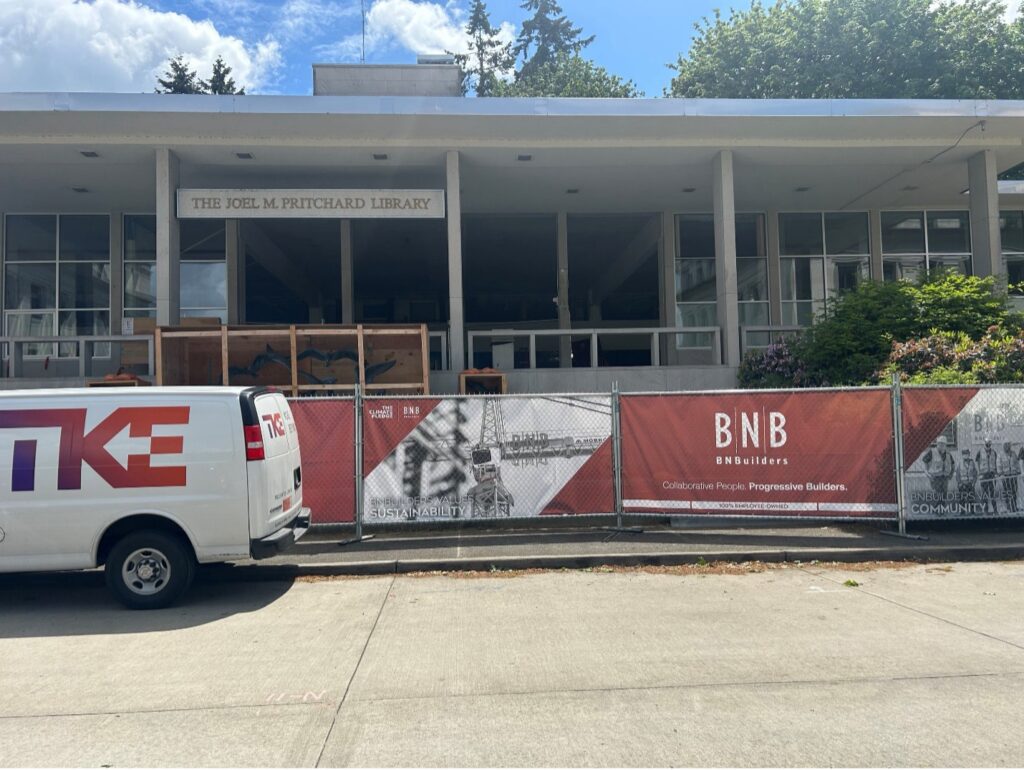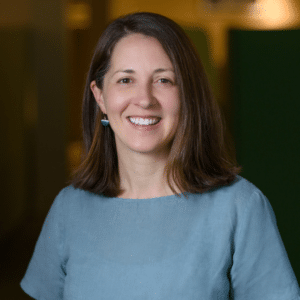
Washington State’s Smallest Ferry: the M/V Sanpoil, aka the Keller Ferry
Photo courtesy of WSDOT
Happy New (Fiscal) Year! The state’s fiscal year begins each July 1st. Hopefully you celebrated accordingly. 😊
Washington State Fun Fact
To honor the spirit of summer, here’s a fun fact about our state! Brownie points to any readers who take advantage of this knowledge and send us a pic sometime this summer; we’ll even feature it in a future edition of Notes (if desired)!
In terms of fleet number and ridership, Washington State Ferries is the largest public ferry operator in the country and provides transportation to many of the state’s beautiful islands.
Updated Caseload Forecast Released
On June 13, the Washington State Caseload Forecast Council released updated forecasts for various entitlement programs ranging from K-12 education to prisons to Medicaid. These forecasts inform budget appropriations by previewing expected demands for specific programs. (Summary document and Narrative document for specific details).
In the early learning space, three key programs are forecasted and showed the following projected changes from the most recent February forecast:
SFY 2024 Projected Caseload |
SFY 2025 Projected Caseload |
|||||
|---|---|---|---|---|---|---|
| June 2024 Forecast | Change from Feb 2024 Caseload | Percentage Change | June 2024 Forecast | Change from Feb 2024 Caseload | Percentage Change | |
| ECEAP | 13,871 | -143 | -1% | 14,880 | -208 | -1.4% |
| Transition to Kindergarten | 5,217 | 41 | .8% | 6,727 | 1,062 | 18.7% |
| Working Connections Child Care | 28,507 | 358 | 1.3% | 33,156 | 2,515 | 8.2% |
ECEAP: The Caseload Forecast Council reports that ECEAP caseload has increased since the low point of the 2020-21 school year during the pandemic.
As in earlier forecasts, most of the ECEAP enrollment growth has come from children who do not meet eligibility under the current criteria. As of March 2024, of the increased enrollment, 343 children met current ECEAP eligibility criteria (3% below March 2023 levels) while 1,065 children did not meet entitlement eligibility criteria (49.9% above March 2023 levels).
As directed in the Fair Start for Kids Act, ECEAP is scheduled to become an entitlement as of July 1, 2026, and income eligibility for the program is scheduled to increase from 110% of the Federal Poverty Level to 36% State Median Income (which is roughly 140% of the Federal Poverty Level). The forecast reflects the projected impacts of these increases.
Actual ECEAP caseloads as compared to the forecast could vary as the forecast assumes substantial caseload growth once the program becomes an entitlement and limited data exists about uptake rates. There could also be variance from the forecast as children included in the forecast for ECEAP participation could opt for participation in other early learning program options.
Transition to Kindergarten: The Caseload Forecast Council narrative notes that during the 2023-24 school year, 144 school districts offered Transitional Kindergarten/Transition to Kindergarten (TK/TTK) in 288 schools. Based on information provided by districts, that number is expected to grow to 161 districts offering TTK in 371 schools in the 2024-25 school year.
While initial growth in TTK was largely centered in rural and smaller school districts, the program is expanding to larger ones, including the Renton and Tacoma school districts in the upcoming school year.
Because this is an emerging program, actual enrollment in TTK could vary from the forecast as districts could opt in or opt out of operating the program.
Working Connections Child Care: In its June forecast, the Forecast Council aimed to account for recently enacted legislation that expanded eligibility for Working Connections Child Care and also for the increased income eligibility (up to 75% of the State Median Income) slated to go into effect on July 1, 2025 per the Fair Start for Kids Act.The risk of variance to this forecast is moderate to high, particularly if participation in the program varies widely from the forecast assumptions once the program’s income eligibility is expanded.
The Caseload Forecast Council is next scheduled to meet on November 13th. This forecast will inform Governor Inslee’s final budget that will be released in December.
Washington Research Council Caseload Forecast Summary Highlights Fair Start for Kids Act: The Washington Research Council, a nonprofit organization that provides economic research and policy analysis, found implementation of aspects of the Fair Start for Kids Act during the 2025-27 biennium as its biggest take-away from the June Forecast Council report and highlighted the implications in its caseload forecast analysis.
In a blog post, the Research Council describes the portions of the Fair Start for Kids Act of 2021 that are slated to go into effect during the upcoming 2025-27 biennium that are reflected in the caseload forecast (e.g. increased income eligibility for Working Connections Child Care and ECEAP entitlement). It is an accurate synopsis and provides an outside look at how other sectors are assessing early learning’s impact on the overall state budget.
Revenue Forecast
On June 26, the Washington State Economic and Revenue Forecast Council met to receive an updated Revenue Forecast from state Economist Dave Reich.
The bottom line is the state’s projected available revenues subject to the four-year budget outlook for the 2023-27 biennia are down by $666 million (or down by 0.5%) from the February forecast. This represents a decrease of $477 million in the current 2023-25 biennium and a decrease of $189 million for the upcoming 2025-27 biennium.
The Education Legacy Trust Account (which is funded in part by capital gains revenue and represents one source of funding for early learning) saw a reduction in projected revenues from the February forecast, largely due to lower projected capital gains receipts. Specifically, the forecast presumes a reduction of $188 million for the 2023-25 biennium and a reduction of $119 million for the 2025-27 biennium.
When asked about the lower capital gains receipts, Economist Reich responded with his opinion that this lower number likely more accurately reflects taxpayer behavior and, going forward, he expects capital gains receipts to be forecasted at $430 million a year. Note: this would mean that, per statute, the Common Schools Construction Account would not receive any capital gains funding as it would only receive funding if capital gain revenues exceed $500 million a year.
When questioned by reporters, Office of Financial Management Director David Schumacher and Democratic budget writers emphasized that the Legislature left healthy reserves and ending fund balances. They also noted this revenue forecast reflects a point in time and additional information will be available as the year goes on – including the outcome of the November initiatives impacting the continued availability of Capital Gains and Climate Commitment Act funding.
The Economic and Revenue Forecast Council will receive two more Revenue Forecasts in 2024 – one on September 27th and a second on November 20th, with the November forecast informing Governor Inslee’s final budget.
State Agency Budget Instructions and OFM Leadership Transition
On June 3rd, the Office of Financial Management (OFM) Director David Schumacher released instructions to guide state agencies in preparation of operating, capital and transportation budget requests (or “Decision Packages”) which are due to OFM by September 10th.
Notably, the instructions open by recognizing more people will need state services in the upcoming biennium, leading to increased costs for providing them. At the same time, available revenues will most likely only “… support the maintenance of current programs, but not growth.”
The instructions direct state agencies to focus on continuation of current programs and anticipated caseload growth. They go on to say that “agencies should also consider potentially pausing the phase-in of new programs, and the creation of new programs should be limited to only the highest priorities.” Of course, the outcome of the November ballot initiatives could impact the availability of revenue and agencies should consider the potential of reduced revenues resulting from the passage of initiatives in their budget requests.
As noted in the instruction letter, agency budget requests are due to OFM by September 10th and will be public shortly thereafter. The Governor and OFM will use this information (along with updated caseload and revenue forecast numbers) to build Governor Inslee’s final budgets that will be released in mid-late December. It will be interesting to see how state agencies interpret these instructions.
OFM Leadership Transition: It should also be noted that Schumacher, who has served as OFM Director for 12 years, recently announced he will be leaving his role this fall to serve as the Public Affairs Director for the Washington State Investment Board. As we get closer to the conclusion of Governor Inslee’s tenure, we can expect to see the departure of other senior members of his team.
Reminder: August Primary Election is Coming!
Don’t forget to vote! The upcoming Primary Election is on Tuesday, August 6 and ballots must be received by 8pm to be counted. Register to vote on the Secretary of State’s website.

 Happy Sunny Interim from the Capitol Building! (Photo Credit: Erica Hallock)
Happy Sunny Interim from the Capitol Building! (Photo Credit: Erica Hallock) The Joel M. Pritchard Library – the latest building on the Capital Campus under construction (Photo Credit: Erica Hallock)
The Joel M. Pritchard Library – the latest building on the Capital Campus under construction (Photo Credit: Erica Hallock)


